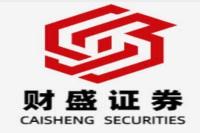Honda CRF1100 Recall: A Deep Dive into the ECU Issue and What it Means for Owners
Meta Description: Honda CRF1100 recall details, ECU software update, safety concerns, affected models, and what owners need to know. Learn about the recall process and potential risks.
This isn’t just another recall notice; it's a critical safety update affecting hundreds of Honda CRF1100 adventure motorcycles. Imagine this: you're carving up a scenic mountain road, the wind in your hair, the engine roaring – then, bam! Your bike suddenly loses power, throwing you off balance and potentially into a dangerous situation. That's the terrifying possibility highlighted in the recent recall of 453 imported 2022-2024 CRF1100 models. This isn't a minor cosmetic issue; we're talking about a potential safety hazard directly impacting the bike's handling and rider control. This detailed analysis will unpack the specifics of the recall, explore the technical aspects of the ECU malfunction, outline the recall process, and arm you with the information you need to ensure your riding experience remains safe and enjoyable. We'll go beyond the press release, delving into the potential consequences of this defect, the steps Honda is taking to rectify the situation, and offer expert advice gleaned from years of experience in the motorcycle industry. This isn't just a story; it's a crucial safety briefing for every Honda CRF1100 owner. We'll address common concerns, offer practical solutions, and provide insights that will leave you better informed and more confident on the road. So buckle up, because this deep dive into the Honda CRF1100 recall will provide clarity and peace of mind. Let's get started, shall we?
Honda CRF1100 Recall: ECU Software Glitch
The heart of the problem lies within the Electronic Control Unit (ECU), the motorcycle's "brain." This sophisticated computer controls various aspects of the engine, including throttle response, fuel injection, and ignition timing. In the affected CRF1100 models, a glitch in the ECU's software, specifically in the anti-wheelie control parameter settings, is the culprit. This misconfiguration can lead to a significant reduction in engine torque output during acceleration. Think of it like this: your bike suddenly decides to become a lot less powerful when you need it most – during acceleration. This is especially dangerous when navigating challenging terrain or executing maneuvers that demand precise throttle control. The resulting loss of control can lead to a loss of balance and, potentially, a serious accident. It’s a scary thought, isn't it? This isn’t a minor inconvenience; it’s a critical safety concern that needs immediate attention.
The recall itself is a proactive step by Honda, demonstrating their commitment to rider safety. They've identified the problem, acknowledged the risks, and are taking swift action to rectify the situation. This proactive approach is commendable and highlights their commitment to quality and customer satisfaction. However, the potential consequences of ignoring the recall are substantial. Riding a potentially faulty bike is simply not worth the risk.
Understanding the Recall Process
The recall process is relatively straightforward. Honda will contact owners of affected bikes directly, informing them of the necessary steps. This typically involves scheduling an appointment at an authorized Honda dealership. During the appointment, trained technicians will upgrade the ECU software with a corrected version that eliminates the problematic anti-wheelie control parameter settings. This software update should take a relatively short amount of time to complete, minimizing any inconvenience to the owner. The service is entirely free of charge, a significant relief for owners who might be worried about expenses.
What to Expect:
- Notification: You'll receive direct contact from Honda or your local dealer.
- Appointment Scheduling: Schedule a convenient time at your local authorized Honda dealership.
- Software Update: Technicians will perform the ECU software update.
- Testing: A post-update test ride might be conducted to ensure everything functions correctly.
The Importance of Prompt Action
One cannot overstate the importance of responding promptly to the recall notice. Delaying the software update exposes you to unnecessary risks. The longer you wait, the greater the chance of encountering the problem firsthand. This isn't something you want to risk, especially considering the potential severity of the consequences. Remember, your safety is paramount. Don't hesitate; schedule that appointment as soon as possible.
Beyond the Recall: Owner Responsibility
While Honda is taking the lead in resolving this issue, owners also have a responsibility to ensure their bikes are properly maintained and serviced. Regular maintenance checks can help identify potential problems before they escalate. Familiarize yourself with your bike's manual, paying close attention to recommended service intervals and procedures. It's always a good idea to proactively maintain your motorcycle for maximum safety and performance. Keep in touch with Honda’s official communications regarding the recall and any further updates.
Frequently Asked Questions (FAQ)
Here are some common questions owners might have regarding the Honda CRF1100 recall:
Q1: How do I know if my motorcycle is affected by the recall?
A1: Honda will contact owners of affected bikes directly. You can also check Honda's official website for recall information and enter your VIN number to verify.
Q2: What if I've already experienced a near-miss due to this issue?
A2: Contact your local Honda dealer immediately. Document the incident thoroughly and report it to Honda.
Q3: How long will the ECU software update take?
A3: The update itself is relatively quick, but scheduling an appointment and potential testing might take a couple of hours.
Q4: Will this affect my bike's warranty?
A4: No. The recall service is covered under warranty.
Q5: What if I'm not near an authorized Honda dealer?
A5: Contact Honda customer service for assistance in finding the nearest dealer or alternative arrangements.
Q6: Are there any other potential problems related to the ECU?
A6: At this time, the recall focuses solely on the anti-wheelie control parameter issue. Honda hasn't reported any other ECU-related problems with this specific model.
Conclusion: Prioritizing Safety
The Honda CRF1100 recall underscores the importance of proactive safety measures in the motorcycle industry. Honda's swift response is commendable, but owner cooperation is equally crucial. By promptly responding to the recall notice and scheduling the necessary software update, owners can significantly mitigate the risk associated with this ECU issue. Remember, your safety shouldn't be compromised. Take action, stay informed, and enjoy the ride with peace of mind.



